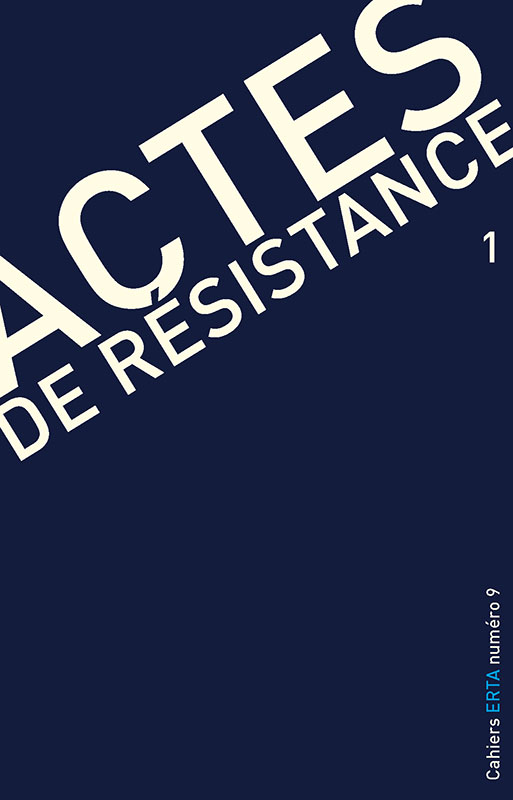Exil de Saint-John Perse : résister par une poétique du vivant
Mots-clés :
history, language, engagement, poetry, actionRésumé
Exile of Saint-John Perse: poetic of vivacity as a resistance act It is against a negative vision of the evolution of history and against the negligence of the work by some writers on behalf of social engagement that Saint-John Perse (1887-1975) refuses to consider his collection, Exile (1944) as a work of resistance. Loneliness is an essential condition for the creation and the dehistoricization included the theme of the artwork in a timeless and universal dimension. The function of the poet is to recall the importance of a dynamic language that resists to the tyranny of rationalism. The poetic creation is the means to resist any dehumanization. The lesson of optimism of the poet directs man towards a future and a horizon to conquer.
Téléchargements
Références
Caillois R., Babel précédé de Vocabulaire esthétique, Paris, Gallimard, 1996.
Camelin C., Gardes‐Tamine J., « Lire Saint‐John Perse en philologue », [dans :] Gardes‐Tamine J. (dir.), Saint‐John Perse sans masque. Lecture philologique de l’oeuvre, Poitiers, La licorne, 2002.
Compagnon A., « Le XXe siècle », [dans :] J.‐Y. Tadié (dir.), Littérature française : dynamique et histoire II, Paris, Gallimard, 2007.
Levillain H., Sacotte M. (dir.), Saint‐John Perse (1945‐1960) : une poétique pour l’âge nucléaire?, Paris, Klincksieck, 2005.
Nasta D., Saint‐John Perse et la découverte de l’être, Paris, PUF, 1980.
Richard J.‐P., Onze études sur la poésie moderne, Paris, Seuil, 1981.
Perse S.J., OEuvres complètes, Paris, Gallimard, 1986.
Thélot J., Travail vivant de la poésie, Paris, Les Belles Lettres, 2013.
Ventresque R., « Procès de l’existentialisme et de la littérature engagée », [dans :] Souffle de Perse, décembre 2010, Hors‐Série, no 1.

 Revues scientifiques académiques
Revues scientifiques académiques





